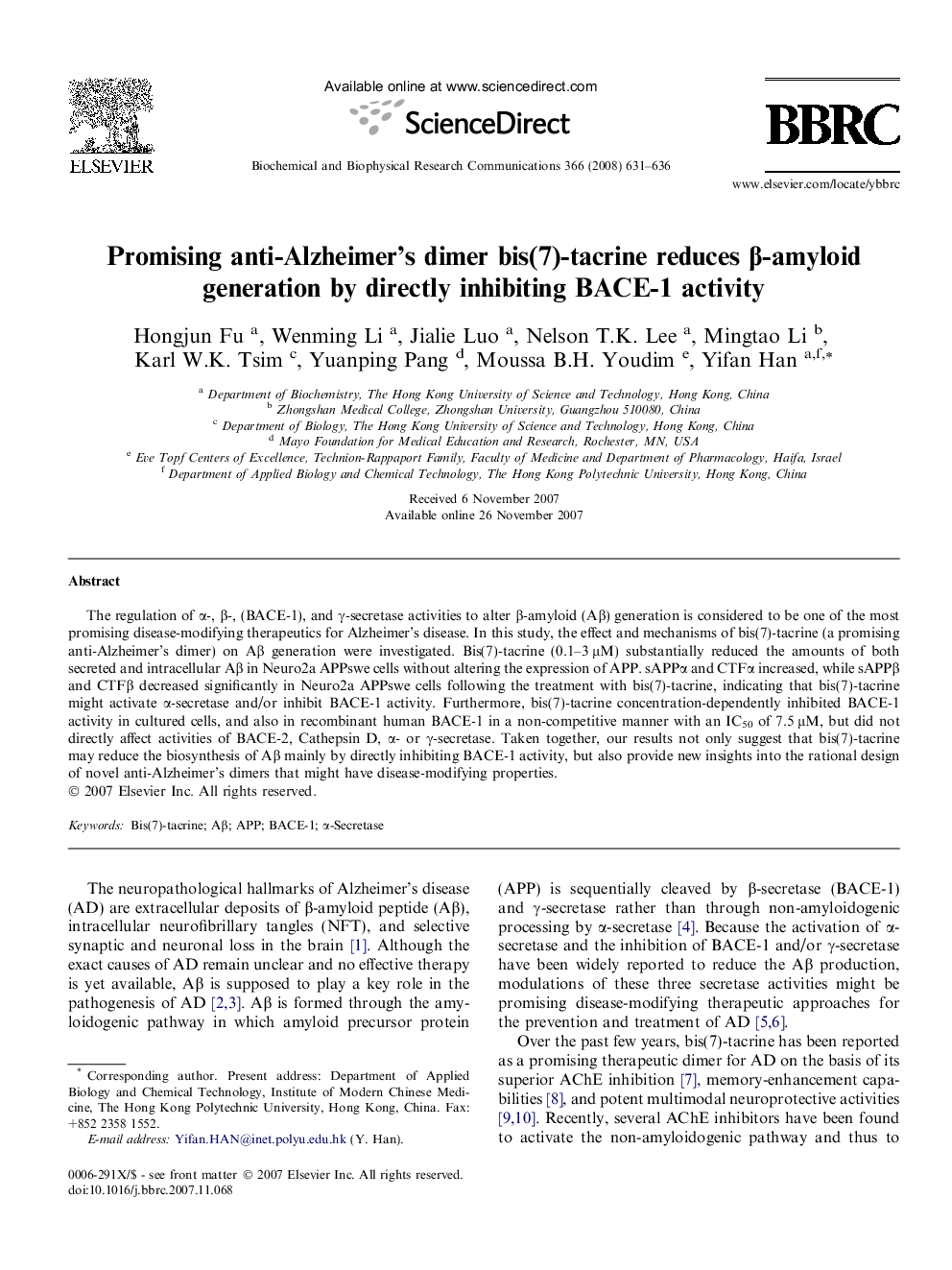| کد مقاله | کد نشریه | سال انتشار | مقاله انگلیسی | نسخه تمام متن |
|---|---|---|---|---|
| 1936422 | 1050691 | 2008 | 6 صفحه PDF | دانلود رایگان |

The regulation of α-, β-, (BACE-1), and γ-secretase activities to alter β-amyloid (Aβ) generation is considered to be one of the most promising disease-modifying therapeutics for Alzheimer’s disease. In this study, the effect and mechanisms of bis(7)-tacrine (a promising anti-Alzheimer’s dimer) on Aβ generation were investigated. Bis(7)-tacrine (0.1–3 μM) substantially reduced the amounts of both secreted and intracellular Aβ in Neuro2a APPswe cells without altering the expression of APP. sAPPα and CTFα increased, while sAPPβ and CTFβ decreased significantly in Neuro2a APPswe cells following the treatment with bis(7)-tacrine, indicating that bis(7)-tacrine might activate α-secretase and/or inhibit BACE-1 activity. Furthermore, bis(7)-tacrine concentration-dependently inhibited BACE-1 activity in cultured cells, and also in recombinant human BACE-1 in a non-competitive manner with an IC50 of 7.5 μM, but did not directly affect activities of BACE-2, Cathepsin D, α- or γ-secretase. Taken together, our results not only suggest that bis(7)-tacrine may reduce the biosynthesis of Aβ mainly by directly inhibiting BACE-1 activity, but also provide new insights into the rational design of novel anti-Alzheimer’s dimers that might have disease-modifying properties.
Journal: Biochemical and Biophysical Research Communications - Volume 366, Issue 3, 15 February 2008, Pages 631–636